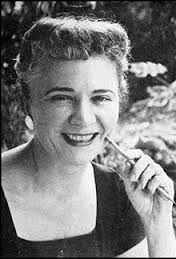OK, I’m gonna do it. With the exception of some of the novels, I’ll be looking at the nominees for the 1945 Retro Hugos, which are awarded for stories published in 1944. I’m going to start with the novelettes. I read “The Children’s Hour” earlier this week as a possibility Henry Kuttner birthday post before the Retro Hugo shortlist was announced. Might as well tackle it while it’s fresh on my mind.
 “The Children’s Hour” was originally published in the March 1944 issue of Astounding. (I’m going to get a lot of mileage out of these posts since many of them will double as Astounding 90th Anniversary posts.)
“The Children’s Hour” was originally published in the March 1944 issue of Astounding. (I’m going to get a lot of mileage out of these posts since many of them will double as Astounding 90th Anniversary posts.)
Before we go any further, I want to address something, and that’s where to find these stories so you can read them. As a general rule, I don’t do review posts of things that aren’t readily available, although I do make exceptions to that rule from time to time. For the Hugos, the voting members of Worldcon get copies of the short fiction to read, and the last time I had a membership, that was true for the Retro Hugos as well.
I don’t have a copy of this year’s Retro nominees that was provided to the Wolrdcon membership. The one year I was a voting member, pretty much everything from the year under question was provided so members could read the stories and nominate for t he short list. If anyone wants to send me a copy, I won’t snitch. Promise.
The only short fiction I don’t have a copy of is “Intruders From the Stars” by Ross Rocklynne, and I was able to order a reprint of that one. I have no illusions that everyone who takes the time to read these posts will have access to all of the stories. The only reason I have copies of some of them is because I bought several complete runs of pulps on CD last year for myself for Father’s Day.
“The Children’s Hour” is one of the tales that will be hard to come by. According to the ISFDB, it has only been reprinted in English four times: twice in 1959, once in 1983, and once in 2010.If you want to read my review, it will be below the “Continue Reading ” link. I will try to avoid as many spoilers as possible in all of these reviews. Continue reading






